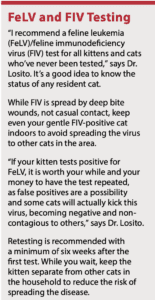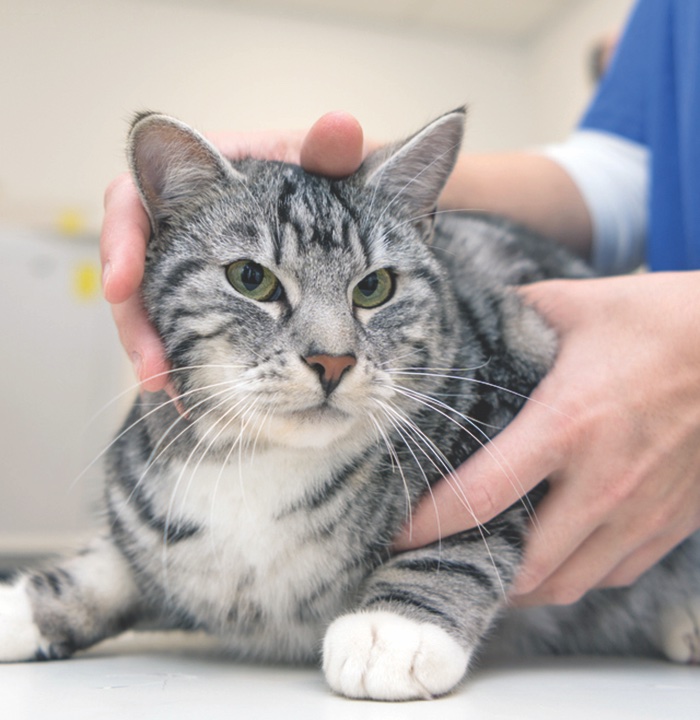With the high cost of veterinary care these days, it is important to make the most of your financial resources without negatively impacting your cat’s health. It isn’t easy, but working with your veterinarian can help you make informed decisions.
Start with understanding the importance of history. Baseline bloodwork, including a chemistry screen and complete blood count (CBC) for kittens and adult cats may be important for comparison if the cat becomes ill in the future.
“This can be done just prior to spay/neuter around six months of age and double as your pre-anesthetic screen, which is important to rule out undue risks associated with surgery. This may be the only time your pet undergoes a major surgery in its lifetime, and we want to make sure we do everything we can to ensure a good outcome.” says Dr. Suzanne Losito, Cornell College of Veterinary Medicine graduate and small animal practitioner in Syracuse, N.Y.
Exams for Older Cats
The life stage where you may be able to safely save a few bucks by skipping routine annual bloodwork is with the young adult cat who is 1 to 6 years old. “I think the annual physical exam is more important than screening bloodwork during this life stage,” says Dr. Losito.
“The wellness exam is an opportunity for us to find problems early that you may not be picking up on at home, like insidious weight gain and dental disease. If your young adult cat looks good, acts good, eats well, litterbox is normal, and his annual physical exam is good, it’s OK, in my opinion, to forego routine screening bloodwork if finances are tight.”
Things change around 7 years of age, however. “I recommend annual screening bloodwork for cats, including chemistry screen, CBC, and thyroid (T4) testing,” says Dr. Losito. “If diseases like chronic kidney disease, hyperthyroidism, or diabetes are identified, the frequency of recommended bloodwork increases to every three to six months for monitoring.”
A urinalysis is a cost-effective way to help rule out both kidney disease and diabetes; two of the big ones we worry about in this age bracket.
“If the cost of screening bloodwork in a seemingly healthy senior cat with a good physical exam is prohibitive, an owner can catch a urine sample at home and bring it in for testing,” says Dr. Losito.

Dealing With Reality
We all want the best care for our beloved pets, but the harsh reality is that the gold standard of care is not always within one’s financial means. If bloodwork seems out of reach, at least do the annual physical examination. It is the most important aspect of preventative care for your pet.
If something suspicious arises at that exam, chances are good you’ve caught the problem early, which is almost always less expensive in terms of treatment. Don’t let fear of costly testing deter you from scheduling your pet’s annual exam.




